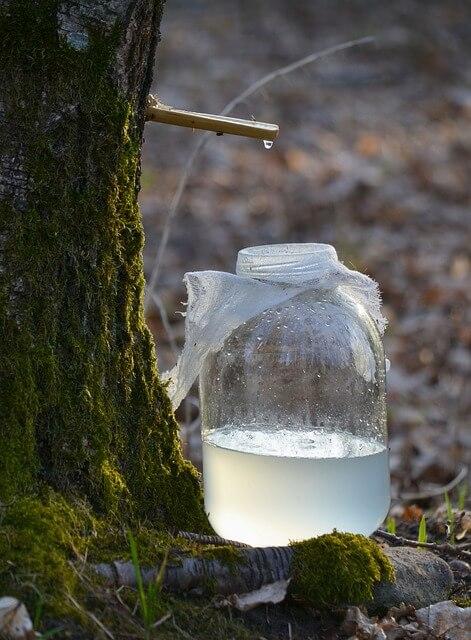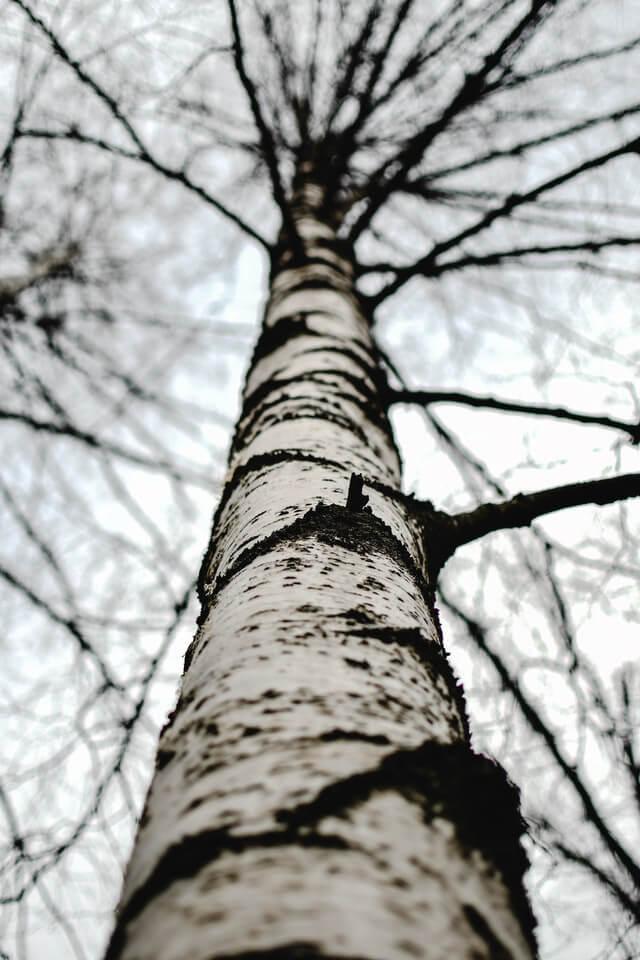Nature offers us many goods and services. This is particularly the case of forests, and in the context of this article, birch forests. Indeed, nothing is lost in the birch; everything is used: the flowers, the buds, the bark, the leaves, and the sap!
Birch sap can be used to do detox cures, which are very beneficial for your body. In this article we will focus on all your questions about birch sap.
Remember, when you buy this kind of product, you are not contributing to deforestation, one the contrary! Choosing products coming from sustainable managed forests allows these to be supported, which thus encourages tree-planting. Therefore, carefully check the origin of your products (There is birch sap generated by our Belgian forests.) and contribute to a more sustainable world.
SUMMARY:
What is birch sap?
What is birch sap made of?
What are the benefits of birch sap?
What are the contraindications of the use of birch sap?
How to choose your birch sap?
How much does birch sap cost?
How to make a cure of birch sap?
What is birch sap?
Birch sap is a colorless liquid produced by birch trees. It is a liquid that is drawn from the soil by the roots of the tree, a mix of water and minerals that nourishes the tree. The quality of the sap thus depends on the quality of the environment and the soil.
The sap is collected by making a small hole in the bark to harvest the sap. This is usually done in spring when the sap rises. A birch tree produces between 150 and 200 litres of sap daily and we only harvest about 10 litres a day, which is harmless for the tree.

What is birch sap made of?
The composition of birch sap depends on the place where it is collected, it is different from tree to tree and from year to year. However, average compositions are known.
Sap is mainly composed of water, hence its transparent colour. It also contains sugars (glucose, fructose, sucrose and galactose), amino acids (glutamine, citrulline, valine, isoleucine, glutamic acid) and acids (malic, citric, succinic, phosphoric). Birch sap also contains minerals (potassium, calcium and silicon) and vitamins in smaller amounts.
Below is an example of the composition of an organic and ECOCERT certified birch sap from a forest in Finland.
| 100 grams of birch sap contains: | Quantity of fruit acids: | ||
| Energy | 10 kJ | Malic acid | 100-600 mg/l |
| Lipids | 0.1g | Succinic acid | 10-300 mg/l |
| Proteines | 0.1g | Phosphoric acid | 10-50mg/l |
| Carbohydrate | 0.62g | Citric acid | 5-20mg/l |
Analysis of Santarome birch sap (data from the Santarome laboratory)
What are the benefits of birch sap?
Birch sap has many benefits for our body and our well-being. Several reliable sources identify the following benefits to our bodies and welfare:
Liver and kidney drainage;
Mineralization and rehydration of the body;
Balancing of the intestinal flora;
Fortifying and revitalizing of the body;
Detoxifying.
As these studies are not very numerous, it is important to remain vigilant about the use of birch sap.

What are the contraindications to the use of birch sap?
As always, elementary prudence is required. Sensitive people should thus refrain from consuming birch sap. This applies in particular to:
People with allergies to birch pollen;
People who have edema related to a heart, kidney disease or any other renal pathology;
Children under 12 and pregnant women (at the moment, there is limited information about them)
Moderation remains in place. If drinking excessive amounts of birch sap or in case of birch intolerance, you will soon notice side effects such as nausea, vomiting, diarrhea or allergies (skin rash, urticaria, allergic rhinitis).
In case of doubts, don't hesitate to ask questions to your doctor to make sure that you are not taking any risks.

How to choose your birch sap?
First of all, it is important to learn the difference between birch sap and birch juice. The juice comes from the leaves of the tree while the sap is extracted by making a cut in the bark of the tree. Both liquids have more or less the same properties but birch sap contains more minerals and trace elements than birch juice. Birch juice is generally cheaper than sap.
Secondly, most of the saps are organic, but they may have other labels such as ECOCERT, AB, European organic, etc. Do not hesitate to check the packaging of your sap for more information.
Finally, there are many sap producers, especially in the Scandinavian countries. However, there are also some saps produced here in Belgium. Do not hesitate to prioritize our local producers!
How much does birch sap cost?
In general, you will pay 15 to 20 euros per liter of local and organic sap.
How to make a cure of birch sap?
It is recommended to do birch sap cures in spring or fall. These cures should always last for 3 weeks. You should drink one glass in the morning before breakfast, diluted with water if desired.

To conclude...
I hope you enjoyed this article on birch sap and that it helped you answering all your questions.
See you soon for new adventures!
Sources :
CHALET, P. (2016). DOCTEUR EN PHARMACIE (Doctoral dissertation, UNIVERSITE DE PICARDIE JULES VERNE). (https://www.seve-bouleau.fr/wp-content/uploads/2019/12/Chalet-Pauline.-Th%C3%A8se-dexercice-pharmacie-UPJV.pdf)
Rastogi S, Pandey MM, Kumar Singh Rawat A. Medicinal plants of the genus Betula--traditional uses and a phytochemical-pharmacological review. J Ethnopharmacol. 2015 Jan 15;159:62-83. doi: 10.1016/j.jep.2014.11.010. Epub 2014 Nov 18. PMID: 25449458; PMCID: PMC7126499. (https://pubmed.ncbi.nlm.nih.gov/25449458/)
Titi the Wapiti
